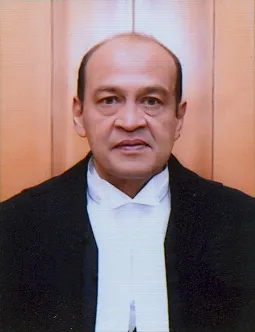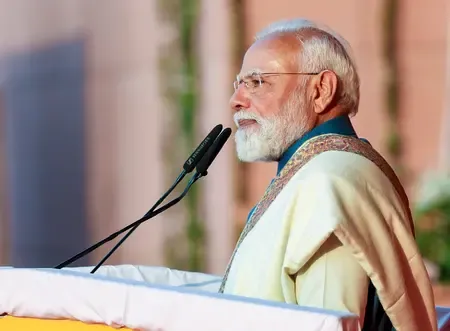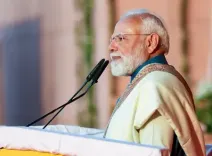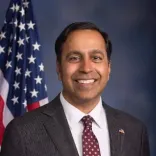Judges Must Be Beyond Reproach? Inquiry Panel Rebukes Justice Varma for ‘Breach of Public Trust’, Say Sources

Synopsis
Key Takeaways
- Judicial integrity is paramount for maintaining public trust.
- The inquiry against Justice Varma highlights the scrutiny judges face.
- Probity is an essential attribute for judicial officers.
- Public expectations from the judiciary are exceptionally high.
- Recommendations for removal signal a commitment to accountability.
New Delhi, June 4 (NationPress) In a remarkable and unprecedented event in the Indian judiciary, a three-member panel established by former Chief Justice of India, Justice Sanjiv Khanna, has found Justice Yashwant Varma, currently serving on the Allahabad High Court, guilty of serious allegations of judicial misconduct, prompting a recommendation for removal proceedings.
The panel’s report, which was presented to then Chief Justice Khanna and subsequently forwarded to both the President and Prime Minister earlier this month, advocated for the judge's removal. This inquiry was instigated by the alarming discovery of a large quantity of burnt cash at Justice Varma’s official residence in New Delhi, following a fire incident on March 14, revealing distressing details, according to sources.
Sources indicate that prior to issuing its grave findings, the three-judge panel emphasized the importance of judicial integrity, referencing the “Restatement of Values of Judicial Life”, a code of ethical standards adopted by the Supreme Court during a Full Court meeting in 1997. The panel asserted that the credibility of the judiciary is grounded in the unwavering integrity and character of its members, declaring: “Probity is the most critical and essential attribute of an individual holding judicial office... The least that is expected from any judicial officer of district or higher judiciary is an unimpeachable character and conduct both inside and outside the courtroom.”
According to sources, the emphasis on probity is particularly significant when it concerns the higher judiciary. The public's expectations from a member of the superior judiciary are exceedingly high. The panel stated that probity is a fundamental eligibility criterion for individuals in judicial positions, reiterating that unimpeachable character and conduct should be the minimum standard for any judicial officer.
The panel noted: “The very existence of judicial office relies on the trust of the public. The level of this trust is directly correlated to the conduct, behavior, and performance exhibited by the judge, both within and outside the courtroom. Any shortcomings in this area undermine public trust, which must be treated with utmost seriousness.”
These statements formed the basis of the panel's harsh critique of Justice Varma, concluding that he had not adhered to the “universally accepted values of judicial life.”
The inquiry primarily revolved around the discovery of significant amounts of cash in the storeroom of 30 Tughlak Crescent, New Delhi—a government bungalow assigned to Justice Varma. The committee found both direct and electronic evidence indicating that the storeroom was under the covert or active control of Justice Varma and his family.
In a particularly damning revelation, the committee stated: “It has been established through substantial inferential evidence that the burnt cash/money was removed from the storeroom during the early hours of March 15, 2025.”
This investigation was reportedly initiated by a letter from the Chief Justice of India dated March 22, 2025, which raised concerns about Justice Varma's integrity and called for a formal inquiry into the allegations. The committee concluded that the misconduct was not only substantiated but also severe enough to necessitate removal proceedings under Article 124(4) of the Constitution.










